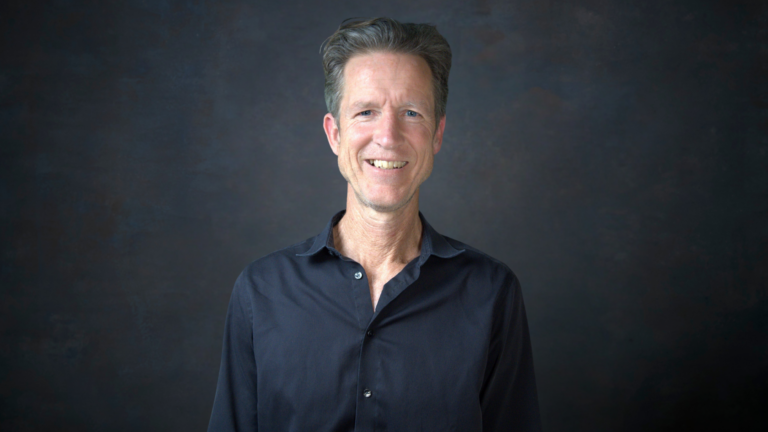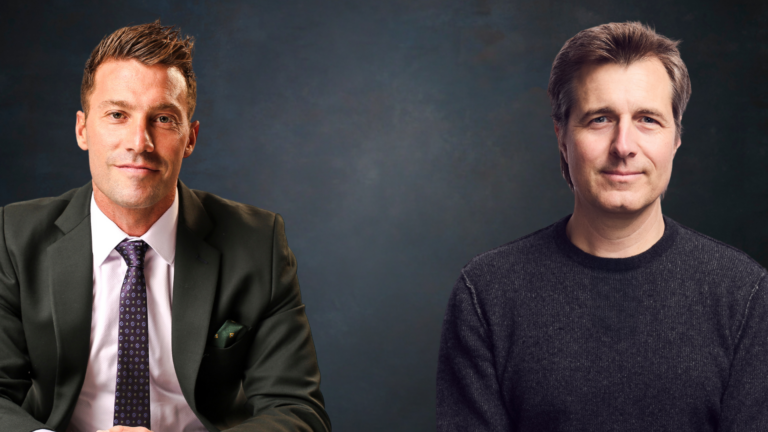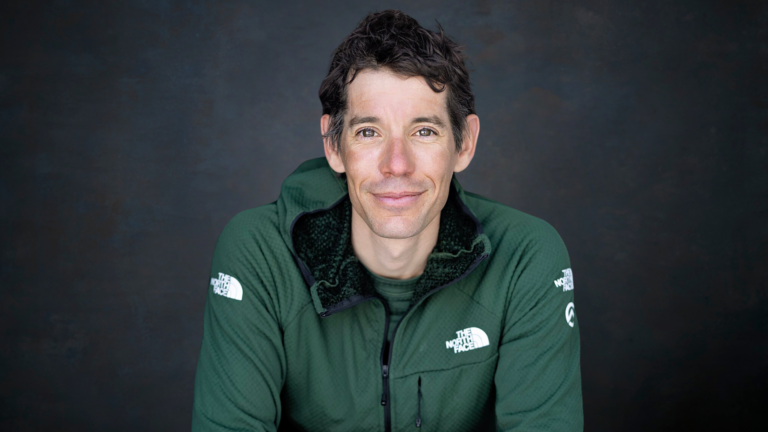Today’s guest gives us a behind the scenes look at one of modern business’s greatest corporate turnarounds. When Oscar Munoz became CEO of United Airlines in 2015, this global organization was anything but united – and its reputation was in free fall.
Oscar’s journey at United began with a whirlwind of challenges and it’s through those experiences that he gained invaluable insights into the power of listening, learning, empathy and resilience. In this conversation, we dive into Oscar’s first 100 days at the helm of United as he faced a daunting task of reshaping the company’s culture, addressing severe customer concerns, and navigating a rapidly changing global industry.
All while 37 days into his new leadership role… he suffered a severe heart attack. In this episode, you’ll hear about that story, how Oscar was able to persevere, and the warning signs that saved his life. We also talk about his first principles – the ones that guided his leadership approach, and how he stayed true to them even during a very public PR crisis for him and United.
In addition to United, Oscar has served in various leadership positions across diverse industries, including U.S. West, AT&T, Coca-Cola, Salesforce, CBRE, and PepsiCo. He is a wealth of knowledge and there are so many gems in this conversation – I can’t wait for you to learn from Oscar’s wisdom, insights, frameworks for leadership, and life.
“To be a great leader, you must have knowledge of your contribution – know who you are, what you’re good at, and what you can bring to other people.”
In This Episode:
A company in turmoil – where to start?
When you have a turnaround situation, and United was all that and more – with regards to it was broken on so many angles – I’ve learned to quickly ascertain that you have to figure out what you want to start with first before you start building all of those other things. And as you go through that, you’re going to get lots of input. Your consultants are there, your board is there, your senior management is there, of course. And then guess who’s also there. Your customers, your investors. And then the one group that’s always left out of that are the actual employees that provide the service in a business like an airline. We’re not making widgets in the back room and shipping them out everywhere. Our service product is on time, friendly skies level of service. And we were doing none of that.
Imposter syndrome
Having that hidden imposter aspect that’s like, oh my God, oh my God, I shouldn’t be here. I think that’s one of the things that…All of us suffer from this. It’s normal. That’s the thing that’s important. Over time, what I have learned is to prepare for that moment that you’re describing in the best way possible. Leading up to that first day, my first instinct was this company, United has been through tumult. They’ve had six or eight CEOs in the previous decade. The departure of this person was sudden, here comes a new person, nobody knows who it is. So if I’m a regular person in this company and I’ve been through all this, I’m like, oh, what am I going to think? Well, I’m going to be like, “Here we go again. Who the heck is this guy? What’s he going to bring?” My first instinct, the self I wanted to bring is a different angle, a different perspective.
Knowledge of contribution
That first day when I walked in, I felt confident about my abilities. I call it a lot of things here, but knowledge of contribution, really know who you are, really know what you do well. And if you put yourself in a situation where what you do best is going to… You’re going to succeed. I had a high degree of confidence that this was going to work because what I did best is what I think United needed. So I walked in with a little confidence, but you’re always wary, you’re always aware of everything around you.
Genuine vulnerability and trust
I can’t express this enough… if you are disingenuine in any way, shape, or form, you are screwed. We forget how intuitive people are regardless of their level. We can all understand when somebody actually gives a hoot about us and when somebody is looking at you and then looking around the room. And where am I going to go next? Or he’s got to catch five, six different people. You have to bring them in. And over this whole process of the book, I’ve heard all these great terminology, but I heard one that says that trust travels at the speed of vulnerability. And that was really resonant with me because I know when I walk into a room, I try to expose myself and all my worries. And in that particular speech, it was really simply around, “Listen, I need your help. We are broken and there’s many things and I’m going to need all of you to do that.” It wasn’t like, “Hey, get out of my way. I’m here. You guys clearly screwed this place up.”
Listen to your people
When our first earnings call, this is still in the first 100 days, “What are you going to do? The street wants to know,” and all this stuff. And I said, “You know what?” Again, back to this learner mentality sort of thing. It’s like, “I don’t exactly have a plan you want to hear at this point because I don’t have all the input I need.” “What input do you need? I told you. I told you what needs to be done,” and so on and so on. I said, “No, and I appreciate all that. And I think these are wonderful things. You know who’s not been asked is the people that actually run this business and provide you that service and keep your airplanes. Something is amiss there. I need to understand. I’m going to go out and hear them. So for the next 60 to 90 days”… I used, it was an arbitrary number, “I’m going to go listen.” You could hear the stocked tape just crashing down. It’s like, “Oh wait, you got this guy. He doesn’t know anything about this business. He says all these wonderful things, and now he’s going to go figure out by talking to people that we’re not”
Allowing other to share
It always takes someone along the way. I have a good friend who used the phrase, Oscar sharing is caring, and you just have to allow people to share. And so I’ve had conversations along the way about, Oscar, you’re really good at what you do. I took a chance on you, and you exceeded my expectations and everyone around you. And I’m like, yeah, that’s right. That’s right. And then he kind of closes the book and says, but if you allow me as a friend to give you some advice. So I’m maybe 26 years old, and I have this big job, so I’m kind of feeling pretty good about myself. I’m like, okay, he wants me to date his daughter or something. That’s how my little arrogant mind was working at the time. And he said, I remember the words to this very day. He said, you’re good. You’re really good, but you’re not yet as good as you think you are. And I’m like, I’m sorry. That didn’t sound like praise. And what he was saying in essence, in today’s parlance, dude, slow your role. I mean, you’re going to be great. And just again, allow other people to share.
Ask yourself, ‘Why?’
There’s so much self help now, I worry that it’s too much. And people rely on a book. Hey, help me, fix me. I grew up in a generation where there was none of that, right? I mean, it was pure, simple trial and error, and having people around you dust you off after you fall and throw you back into the fray. So I would say that it’s taken some seminal moments. My mom passing away, she was very young, and when she passed, and I was this really structured, rigid…. I wanted to prove to the world that I was belonged there, and I was trying way too hard, and watching her die at such a young age and all that impact that it had on my eight brothers and sisters who were younger than I was and all of that, it made me realize, what am I doing? Why am I trying so hard to prove things? First of all, it isn’t me. Two, it’s too darn hard. Yes, I’m having success at it, but I’m not having a good time.
Swing easy
For all of us that play sports and watch professional golfers or tennis players. You watch them. It’s perfect. Ball goes straight, goes down the middle, and then you watch us play, right? And we try too hard. We swing too hard, and the ball goes all over the place. And so from just a terminology and an optic view for someone, learn how to swing easy, which means this concept of finding yourself. And I always add, no, really, we are all petty and greedy, and we have all of those very unenviable sort of things in our body. The best of us understand that we have those and do enough to modulate or moderate or bring those things down or become aware. So awareness is a big thing. So I did it through trial and error. I was so rigid, had this seminal moment with my mom passing, came back and learned how to swing easy.
Addressing a massive PR crisis
Here’s the trick for all of us as leaders. It is never too late to do the right thing… [I went on Good Morning America and] the fate of the company ‘s brand, its reputation, my reputation, my heritage. Can someone like me from my background do this job? All of the almost a 100,000 employees that we have, it’s all out there to be blown up. And I’m going to go on TV and everybody’s going to be watching, and this is going to be told forever. And we’ve all seen the media training of how not to handle those conversations. The oil spill is probably the best example of that. But when I kneeled and looked and there was no light shining, there was nothing dramatic. But I thought about my grandmother, I thought about myself, and I felt this calm. And I didn’t know what I was going to say the next morning. Really, I didn’t. But when I got there and they thrust that thing in my face, and what’d you think? I said, “It’s my fault. It was horrible. We let the policies and procedures of running an airline get in the way of treating someone, a human being, and that should never happen.”
His heart attack… 37 days into his new role
My phone’s buzzing. I’m walking, my legs give out, my legs feel weird. I take two more steps, my legs actually give out and I’m on my knees. I feel a little clammy. And that word of the story comes flowing back to me. So I look at my cell phone and I look at the landline. It was a rental apartment that was just there. Some of us may remember what a landline is. I’ve read about them myself. So I pick up the phone and I dial 911 and immediately tell them where I am. So 37 days into the job, 37 minutes from my call on that Northwestern hospital in Chicago on a heart lung machine. They basically put me in a medical coma. And for the next seven days I was in la la land because I had, or as the doctor said it, “Your heart has received major insults.”
Proof, not promise
The thing that probably is missing the most in our nation today is this concept of proof, not just promise. So many people walking around, and I’m not just thinking politics, but everybody loves to get past the conversation, “Oh, no, no, yeah, get that done, boss,” or whatever; have an opinion, an educated opinion that is yours, not the world’s, not what everybody’s talking about, not what social media’s talking about. How do you feel about that? You will find you have infinitely more allies than you think, and more importantly, you will have an ability to change the world in a way that’s meaningful. Because just agreeing with everything and not having your own opinion, you’re just one of the masses. And that’s part of knowing yourself to some degree. We got to learn how to stand up and be humans and individual thinkers.



